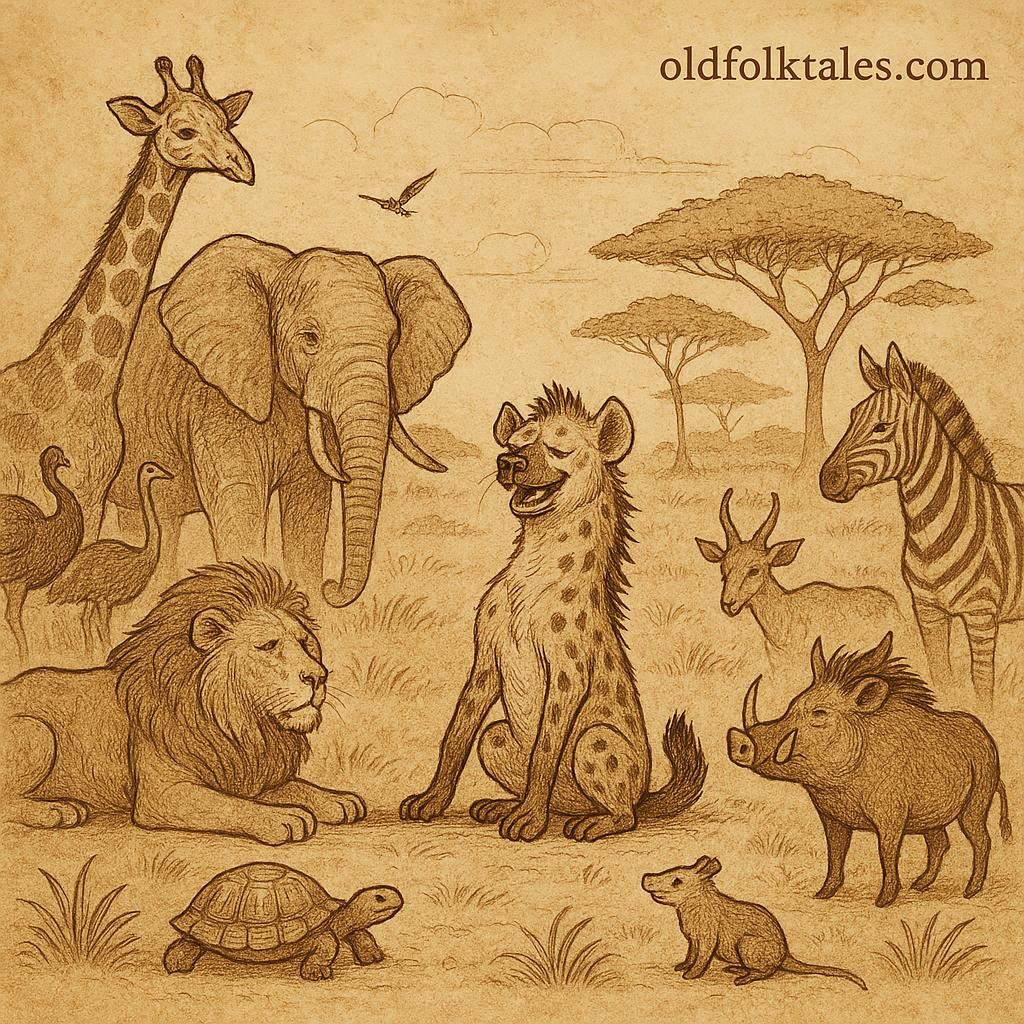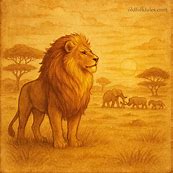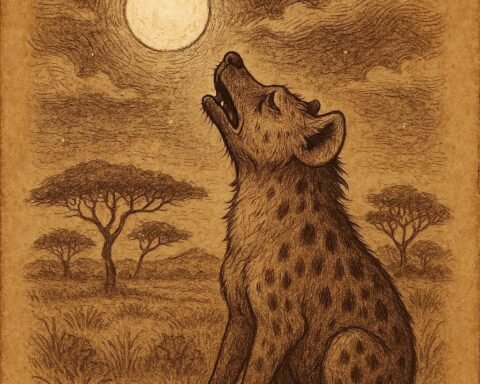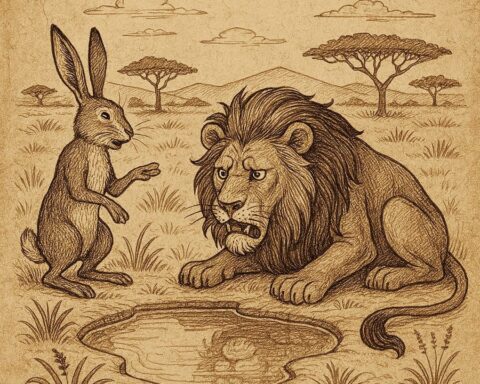Long ago in the dry but fertile lands of the Sahel, the animals lived together in fragile peace. The sun burned hot above the golden grasses, and the nights carried winds that whispered old secrets across the plains. The animals had no king, and though they lived by instinct and strength, they often quarreled and struggled for survival. One day they gathered and decided it was time to choose a ruler who would guide them and bring order to their lives.
Word spread quickly, and soon the clearing in the savannah was filled with creatures of every kind. The lion stood tall, his mane glistening in the morning light. The elephant raised his mighty trunk, shaking the ground beneath his feet. The gazelle and antelope pranced lightly, whispering among themselves. The wise tortoise crawled slowly into the circle, carrying his shell like a moving house. Among them, to the surprise of many, came the hyena.
The hyena, with his crooked grin and restless eyes, strutted into the gathering as if he already wore a crown. “Why should I not be king?” he asked, his laugh echoing across the plain. “Am I not strong? Am I not feared? Do I not know how to take what I need?”
READ THIS:The Twin Hunters of the Savannah
Some animals muttered uneasily, for the hyena was indeed feared. He prowled the night, snatching food from others and devouring even the bones that no creature else would touch. Yet fear is not the same as respect, and respect is the root of true leadership. The tortoise cleared his throat and said, “A king must be wise. He must protect his people, not rob them. He must think beyond his own hunger.”
But the hyena paid no attention. He grinned wider and declared, “If I were king, I would feast every day. The best of the kill would be mine. None would dare challenge me, and I would grow fat and powerful.”
The animals looked at one another. Some were frightened by his boldness, but others shook their heads. The elephant rumbled, “A king must carry the burdens of his people, not only his own belly.” The lion roared, “A ruler must have dignity. What dignity is there in greed?”
Still, the hyena pushed forward, insisting on being tested. To prove his worth, the animals set a trial: each candidate for kingship must show restraint and wisdom at the great feast to be held that night. Whoever could lead by example, share fairly, and show discipline would be chosen as king.
When night came, the animals laid out their feast beneath the bright stars. Fruits, fresh water, tender meat, and roots gathered from far and wide filled the ground with abundance. One by one, the animals approached and ate modestly, leaving plenty for others. Even the lion, though hungry, tore only a piece and stepped aside.
But when it was the hyena’s turn, he lunged at the food with wild laughter. He shoved aside the smaller animals, tore into the meat, and stuffed his mouth until he could hardly breathe. He gnawed bones, licked the platters clean, and rolled on his back with his belly swollen. “See how I enjoy the feast of a king!” he shouted, but no one cheered.
The animals turned away in disgust. The tortoise spoke softly but firmly: “This is not the way of a ruler. You have shown us your greed. You have shown us your foolishness. A king thinks of his people before himself. You have failed.”
Ashamed yet unwilling to admit defeat, the hyena slunk into the darkness. His laughter echoed faintly, but it no longer carried the power it once did. From that day on, the animals remembered that leadership is not about hunger or power, but about wisdom, fairness, and the ability to guide others with respect. And so the hyena never became king, his greed forever marking him unworthy.
Moral Lesson
The Hyena Who Wanted to Be King teaches us that leadership is not measured by fear, greed, or power but by wisdom, fairness, and respect for others. True rulers put their people before themselves, and those who seek power only for personal gain are destined to fail.
Knowledge Check
What is the main lesson from The Hyena Who Wanted to Be King?
The main lesson is that true leadership comes from wisdom, fairness, and respect, not from greed or selfishness.Why did the animals decide they needed a king in the story?
The animals wanted a king to bring order, peace, and guidance to their community in the savannah.How did the hyena behave when he was asked to prove himself as a leader?
The hyena behaved greedily, eating all the food at the feast, pushing others aside, and showing no restraint.What qualities did the tortoise, lion, and elephant say a good king must have?
They said a true ruler must be wise, dignified, fair, and willing to carry the burdens of the people instead of seeking selfish gain.Why did the animals reject the hyena as their ruler in the end?
They rejected him because his greed and foolishness proved he was unfit to lead or care for anyone but himself.What does this Soninké folktale from Mali teach about leadership and greed?
It teaches that leaders who are selfish and greedy will never succeed, while those who act with wisdom and fairness will earn respect.






